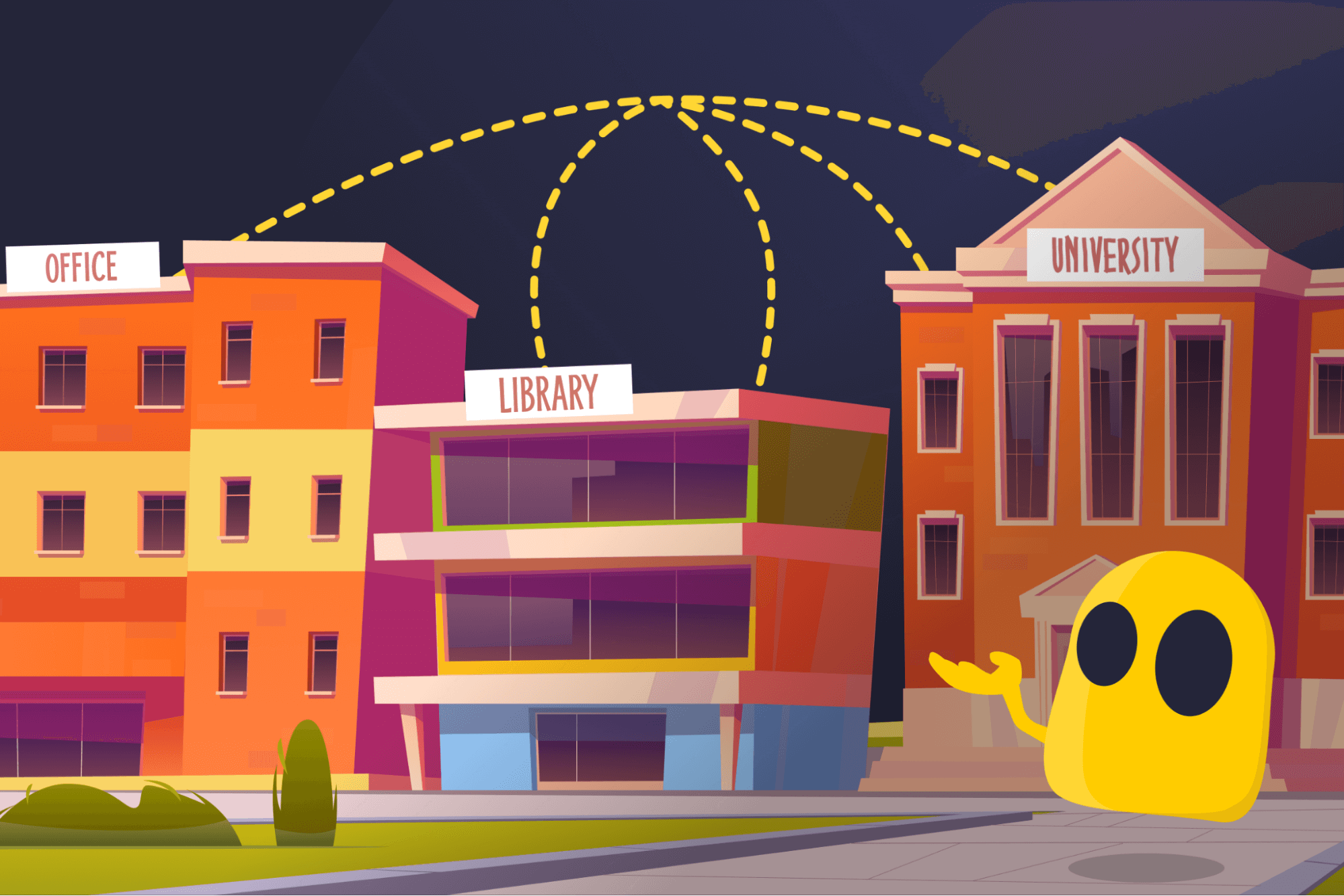Campus Area Network

Campus Area Network (CAN) Definition
A campus area network (CAN) is a private computer network that connects multiple local area networks (LANs) across neighboring buildings. It links them together in a larger unified system and usually covers areas like university campuses, business parks, or hospital buildings. This setup lets users share files, access resources, and communicate easily across the campus network.
CANs typically rely on fiber-optic cables or high-speed wireless connections to ensure strong, reliable performance.
Benefits of Campus Area Networks
- Faster data transfer: Keeps traffic local, which reduces lag and supports file sharing, video conferencing, and bandwidth-heavy apps.
- Simplified network management: Allows IT teams to control security, apply updates, and monitor the network from a central location, making admin easier, more efficient, and consistent.
- Lower operational costs: Relies on private infrastructure instead of using third-party services for cloud storage, file sharing, or app hosting, reducing long-term expenses.
- Stronger internal security: Gives organizations more control over their traffic and who can access the network.
- Flexible scaling: Makes it easy to add new devices or users as the organization grows. However, adding new buildings may require new fiber and distribution equipment.
Drawbacks of Campus Area Networks
- Hardware equipment: A CAN network depends on hardware like cables and switches.
- Regular upkeep: It needs constant maintenance and updates to run smoothly.
- Single points of failure: A fault in one key component can disrupt the entire system.
- Security risks: Larger networks create more potential entry points for attackers.
- Complex setup and management: Setting up and running a CAN takes time, resources, and technical skill.
Campus Area Network Security Tips
To keep a campus area network safe, organizations often split the CAN into segments or zones to keep the network safe and manage who can access what. Additionally, using firewalls to filter incoming and outgoing traffic helps block threats and protect sensitive data.
Many businesses also use strong access controls, keep software updated, and encrypt data in transit and when stored. Others use intrusion detection, have response plans for incidents, and offer regular security training to reduce human error.
Read More
FAQ
A campus area network (CAN) is a private system that connects multiple local area networks (LANs) across nearby buildings. It typically covers a limited area, such as a university, business campus, or hospital, and allows for easy communication and resource sharing.
A university campus network is one of the most common examples of a CAN. It connects classrooms, libraries, dorms, and offices. This allows students and staff to share files, use learning tools, and communicate across campus.
A campus area network improves speed for file sharing, video calls, and other data-heavy tasks. It simplifies IT management by centralizing control and boosts security by restricting unauthorized access and keeping data private. It also lowers long-term costs with internal infrastructure instead of relying on third-party services for connectivity, storage, or applications.

 45-Day Money-Back Guarantee
45-Day Money-Back Guarantee